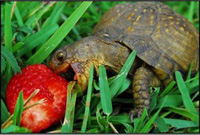Folha de São Paulo – Revista sãopaulo
8 de junho de 2014
by Vanessa Barbara
Already at the restaurant entrance, a waiter with a grubby apron goes by carrying a bucket of water from which a live fish is vigorously leaping into the air. The customers smoke continuously, talk loudly and happily suck up the noodles. In the corridor there’s a wall of aquariums containing supposedly edible creatures – at first glance it’s difficult to know whether we’re in a restaurant or a pet shop.
The place is called Baoluo Jiulou, an enormous establishment in Shanghai frequented by both expatriates and locals. People say the place is nicknamed “Tardis” (the time machine in the “Doctor Who” TV series), because from the outside, it’s impossible to guess the size of the dining room, with its capacity for three hundred dinner guests.
For those who don’t understand either Shanghai-ese. Cantonese or Mandarin, a good restaurant in China should possess two features: a menu in English and a helpful waiter. It helps a lot if the menu is illustrated, but none of these conditions may be enough to ensure that you know exactly what you’re eating.
Restaurants usually serve a myriad of creatures belonging to every kingdom, phylum and category of animal, vegetable and mineral, such as sea cucumber soup and fresh sea urchin testicles.
Even now, I’m not sure what my stomach had to process during my two stays in China. I particularly remember a banquet given by the rector of Nanking University, at which nineteen dishes were laid out on a circular table, ranging from smoked pig’s tongue to black eggs and strips of eel. They say that at these official functions, you must alternate between bitter, sour, spicy, sweet and salty.
I would shut my eyes and, in the name of diplomatic relations and friendship between nations, get stuck in.
Eating far from home is always an adventure. In China, menus are often translated into “Chinglish”, a hybrid and enigmatic language with esoteric overtones. I saw a soup called “Buddha jumps the wall” and a dish called “the temple explodes the chicken cube”. The photo looked inviting, but I ended up declining the “Onion explodes the distant senate”.
One has to proceed with caution when faced with “advantageous noodle”, and “deep-fried seasame children stick with tartar sauce”. A “preserved lean meat arteriosclerosis” should be approached gingerly, as should the bowl of “chilli crack” and the “binaural infected cucumber”. Also to be avoided is the “dumpling stuffed with the ovary digestive glands of a crad”.
On the beverage menu, the options could be: “orange juice”, “lemon juice”, “red cabbage juice”, “cucumber juice” and “strange juice”. When in doubt, always order “the same thing that they’re eating, without the tentacles”.

